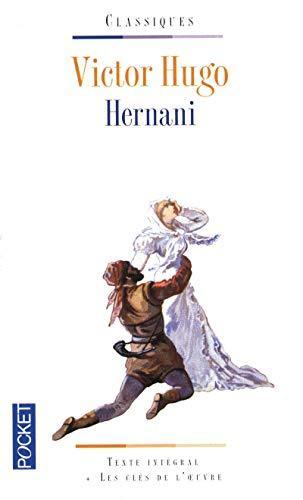Idioma French
Publicado el 17 de diciembre de 2010

Idioma French
Publicado el 17 de diciembre de 2010
Hernani (full title: Hernani, ou l'Honneur Castillan) is a drama in rhyming alexandrines by the French romantic author Victor Hugo. The title originates from Hernani, a Spanish town in the Southern Basque Country, where Hugo's mother and her three children stopped on their way to General Hugo's place of residence.The play was given its premiere on 25 February 1830 by the Comédie-Française in Paris. Today, it is more remembered for the demonstrations which accompanied the first performance and for being the inspiration for Giuseppe Verdi's opera Ernani than it is for its own merits. Hugo had enlisted the support of fellow Romanticists such as Hector Berlioz and Théophile Gautier to combat the opposition of Classicists who recognised the play as a direct attack on their values. Hernani is used to describe the magnitude and elegance of Prince Prospero's masquerade in Edgar Allan Poe's short story "The Masque of the Red …
Hernani (full title: Hernani, ou l'Honneur Castillan) is a drama in rhyming alexandrines by the French romantic author Victor Hugo. The title originates from Hernani, a Spanish town in the Southern Basque Country, where Hugo's mother and her three children stopped on their way to General Hugo's place of residence.The play was given its premiere on 25 February 1830 by the Comédie-Française in Paris. Today, it is more remembered for the demonstrations which accompanied the first performance and for being the inspiration for Giuseppe Verdi's opera Ernani than it is for its own merits. Hugo had enlisted the support of fellow Romanticists such as Hector Berlioz and Théophile Gautier to combat the opposition of Classicists who recognised the play as a direct attack on their values. Hernani is used to describe the magnitude and elegance of Prince Prospero's masquerade in Edgar Allan Poe's short story "The Masque of the Red Death". Gillenormand in Les Misérables criticizes Hernani.Verdi's opera Ernani, with an Italian libretto by Francesco Maria Piave, was based on the play, and first performed in Venice in 1844.